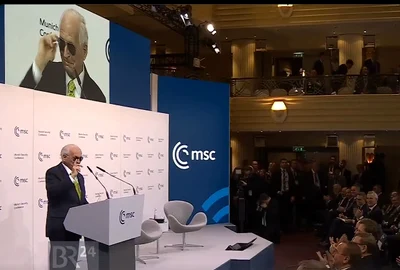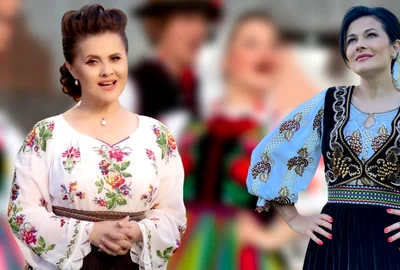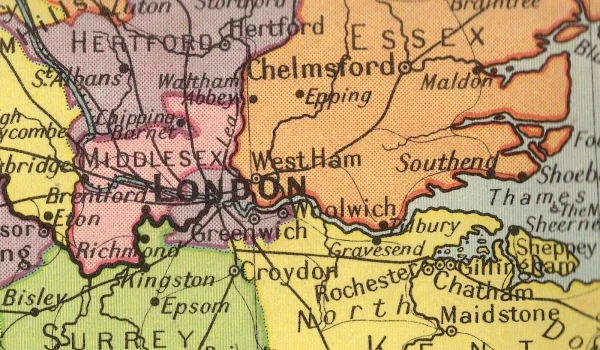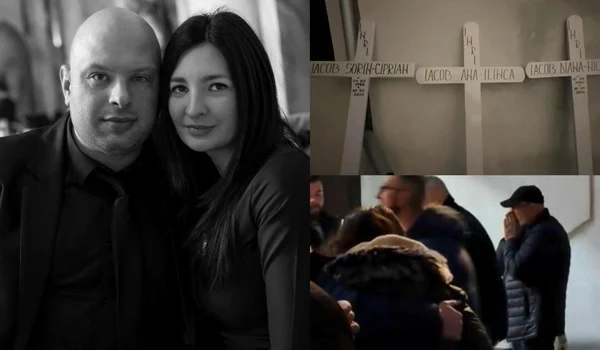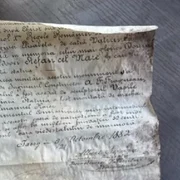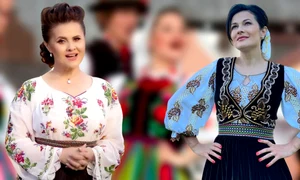
Sine qua non. #HarvardGenEd
0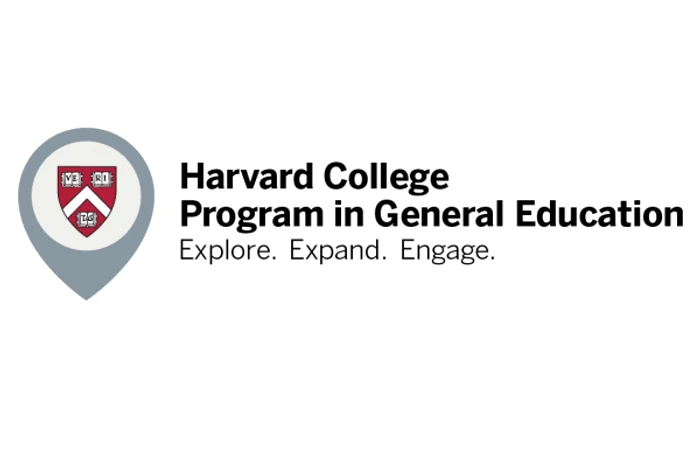
Harvard College Program in General Education ilustrează impecabil frumuseţea, armonia şi forţa academică de excepţie proprii unei arhitecturi curriculare demne de o universitate ce defineşte – împreună cu alte puţine câteva - referenţialul cardinal al educaţiei de clasă în lume. Distinsă Alianţă a Colegiilor Centenare, te invit să parcurgi atent acest studiu de caz şi să-l foloseşti inteligent în proiectarea propriului model curricular. Succes!
De aici puteţi porni să exploraţi universul Gen Ed, potrivit propriilor preferinţe şi interese. Pentru că subiectul arhitecturii curriculare este, în opinia mea, critic pentru o schimbare sănătoasă de paradigmă a sistemului public al Educaţiei în România, voi folosi sintagma cu care Universitatea Harvard caracterizează această component academică fundamental pentru pregătirea studenţilor săi, anume:
Transformarea curriculară este piatra unghiulară a transformării Şcolii ca sistem.
The Program in General Education is the cornerstone of the Harvard College curriculum. Focusing on urgent problems and enduring questions, Gen Ed courses are unusually explicit in connecting the subjects you study to the people you will become and the world beyond the classroom. Transcending disciplinary divisions, they demonstrate the value of embedding what you will learn in your concentrations within the broader context of the liberal arts.
Pe româneşte:
Programul de Educaţie Generală este piatra unghiulară a curriculumului oferit de Harvard College. Fiind focalizate deopotrivă pe probleme urgente, dar şi pe întrebări mereu actuale (de fond, esenţiale), cursurile GenEd sunt neobişnuit de explicite în a conecta subiectele pe care le studiaţi cu oamenii care veţi deveni şi cu lumea de dincolo de sala de clasă. Depăşind segmentările disciplinare, ele demonstrează valoarea incorporării organice în ariile voastre de concentrare a contextului generos, larg al artelor liberale.
În acest studiu de caz esenţializez două dimensiuni majore ale arhitecturii curriculare oferite de Harvard College în secolul XXI: 1. viziunea de ansamblu – respectiv, relaţia între componenta GenEd şi celelalte arii de învăţare obligatorii pentru absolvirea colegiului; 2. descrierea succintă exhaustivă a componentei General Education – arii de învăţare şi cursuri oferite în cadrul fiecărei arii în parte. Toate denumirile – arii curriculare, cursuri – sunt în limba engleză, fiecare unitate de informaţie în parte trimiţând la informaţii exhaustive, prin referinţele online corespunzătoare.
I. Tabloul de ansamblu
Regulile jocului academic sunt următoarele:
- fiecare student trebuie să absolve patru cursuri GenEd, câte unul din fiecare categorie GenEd (v. secţiunea II); trei cursuri sunt evaluate cu note-litere (A, B, C,...), iar un curs este evaluat cu calificativ admis/respins (pass/fail)
- în plus, studenţii trebuie să absolve cursuri în următoarele patru arii de învăţare obligatorii (requirements): language requirement;; Expository Writing requirement; distribution requirement; Quantitative Reasoning with Data requirement
- aria curriculară distribution requirement conţine trei secţiuni obligatorii (studenţii parcurg câte un curs din fiecare secţiune): Arts and Humanities; Social Sciences; Science and Engineering and Applied Science.
II. GenEd. Jocul cu mărgele de sticlă
Patru sunt coloanele sine qua non ale Templului GenEd. Numele lor vorbesc de la sine, iar numărul cursurilor obligatorii din fiecare arie este egal cu unu – nu două, nu trei, nu şapte.
Iată arhitectura GenEd:
- Aesthetics & Culture
- Ethics & Civics
- Histories, Societies, Individuals
- Science & Technology in Societies
Şi iată, exhaustive, ofertele de cursuri aferente fiecărei arii de învăţare GenEd în parte:
Aesthetics & Culture
- Act Natural (Gen Ed 1050)
- Adam & Eve (Gen Ed 1075)
- American Dreams Made in Hollywood (Gen Ed 1043)
- Anime as Global Popular Culture (Gen Ed 1042)
- Black Radicalism (Gen Ed 1016)
- Classical Mythology: The Power of Mith in Antiquity and Today (Gen Ed 1110)
- Creativity (Gen Ed 1067)
- Digging the Glyphs: Adventures in Decipherment (Gen Ed 1061)
- Disease, Illness, and Health through Literature (Gen Ed 1078)
- East Asian Cinema (Gen Ed 1049)
- Elements of Rhetoric (Gen Ed 1082)
- Faith and Authenticity: Religion, Existentialism, and the Human Condition (GenEd 1069)
- Global Japanese Cinema (Gen Ed 1145)
- Happiness (Gen Ed 1147)
- Harvard Gets Medieval (Gen Ed 1160)
- Interracial Encounters in American Literature and Culture (Gen Ed 1135)
- Literatures of Decolonization (Gen Ed 1155)
- Living in an Urban Planet (Gen Ed 1103)
- Loss (Gen Ed 1131)
- Making Memories (Gen Ed 1060)
- Modern Art and Modernity (Gen Ed 1156)
- Multisensory Religion: Rethinking Islam Through the Arts (Gen Ed 1087)
- Music and Poetry (Gen Ed 1157)
- Music from Earth (Gen Ed 1006)
- One Book, Two Religions, Many Truths (Gen Ed 1149)
- Painting’s Doubt: A Studio Course (Gen Ed 1114)
- Permanent Impermanence: Why Buddhists Build Monuments (Gen Ed 1083)
- Poetry Without Borders (Gen Ed 1057)
- Politics, the Greatest Art (Gen Ed 1139)
- Popular Culture and Modern China (Gen Ed 1111)
- Power to the People: Black Power, Radical Feminism, and Gay Liberation (Gen Ed 1130)
- Race, Gender, and Performance (Gen Ed 1113)
- Satire (Gen Ed 1010)
- Stories from the End of the World (Gen Ed 1001)
- Texts in Transition (Gen Ed 1034)
- The Ancient Greek Hero (Gen Ed 1074)
- The Art and Politics of Propaganda (Gen Ed 1012)
- The Empire Strikes Back: Science Fiction, Religion, and Society (Gen Ed 1024)
- The Philosopher and the Tyrant (Gen Ed 1030)
- The Real Game of Thrones (Gen Ed 1041)
- The Stories We Tell (Gen Ed 1021)
- The Urban Imagination in Global Arts and Media (Gen Ed 1077)
- Tradition, Performance, and Culture (Gen Ed 1097)
- Transforming Society: Revolution or Reform (Gen Ed 1055)
- Video: The Practice of Seeing (Gen Ed 1072)
- Vision and Justice: The art of Race and American Citizenship (Gen Ed 1022)
- What is a Book? (Gen Ed 1090)
Ethics & Civics
- Adam & Eve (Gen Ed 1075)
- Borders (Gen Ed 1140)
- Brains, Identity and Moral Agency (Gen Ed 1064)
- Classical Chinese Ethical and Political Theory (Gen Ed 1091)
- Conflict Resolution in a Divided World (Gen Ed 1033)
- Consent (Gen Ed 1138)
- Dissent and Disobedience in Democracies (Gen Ed 1035)
- Economic Justice (Gen Ed 1121)
- Equity and Excellence in K12 American Schools (Gen Ed 1076)
- Ethics of Climate Change (Gen Ed 1015)
- Evolving Morality: From Primordial Soup to Superintelligent Machines (Gen Ed 1046)
- Global Gandhi: Nonviolent Resistance (Gen Ed 1108)
- Human Trafficking, Slavery and Abolition in the Modern World (Gen Ed 1115)
- If There Is No God, All is Permitted: Theism and Moral Reasoning (Gen Ed 1161)
- Ignorance, Lies, Hogwash, and Humbug (Gen Ed 1023)
- Making Change When Change is Hard: The Law, Politics and Policy of Social Change (Gen Ed 1102)
- Martin Luther King, Jr. and the Question of Conscientious Citizenship (Gen Ed 1142)
- Medical Ethics and History (Gen Ed 1116)
- Medicine and Conflict: The History and Ethics of Healing in Political Turmoil (Gen Ed 1150)
- Money, Markets and Morals (Gen Ed 1109)
- Nature (Gen Ed 1117)
- Race and Caste (Gen Ed 1126)
- Race and Justice (Gen Ed 1146)
- Rationality (Gen Ed 1066)
- Reclaiming Argument: Logic as a Force for Good (Gen Ed 1051)
- Res Publica: A History of Representative Government (Gen Ed 1032)
- Security (Gen Ed 1020)
- Social Justice and the Family (Gen Ed 1132)
- Tech Ethics: AI, Biotech, and the Future of Human Nature (Gen Ed 1058)
- The Conduct of Life in Western and Eastern Philosophy (Gen Ed 1128)
- The Constitution in Practice (Gen Ed 1151)
- The Democracy Project (Gen Ed 1002)
- The Meaning of Life (Gen Ed 1163)
- The Philosopher and the Tyrant (Gen Ed 1030)
- The Political Economy of Globalization (Gen Ed 1120)
- The Social Responsibilities of Universities (Gen Ed 1122)
- Who Do You Think You Are? The Ethics of Identity (Gen Ed 1009)
- Work, Life and Purpose in an Uncertain World (Gen Ed 1028)
Histories, Societies, Individuals
- Africa and Africans: The Making of a Continent in the Modern World (Gen Ed 1096)
- American Capitalism (Gen Ed 1159)
- American Society and Public Policy (Gen Ed 1092)
- Ancestry (Gen Ed 1014)
- Asia in the Making of the Modern World (Gen Ed 1026)
- Ballots and Bibles: Why and How Americans Bring Scriptures into Their Politics (Gen Ed 1062)
- Borders (Gen Ed 1140)
- Can We Know Our Past? Archaeology’s Dirty Little Secrets (Gen Ed 1105)
- Contemporary Developing Countries: Entrepreneurial Solutions to Intractable Problems (Gen Ed 1011)
- Designing the American City: Urban Aspirations and Urban Form (Gen Ed 1003)
- Equity and Excellence in K12 American Schools (Gen Ed 1076)
- Food Culture and Society (Gen Ed 1124)
- Forced to be Free: Americans as Occupiers and Nation Builders (Gen Ed 1017)
- Global Feminisms (Gen Ed 1036)
- Global Gandhi: Nonviolent Resistance (Gen Ed 1108)
- Guns in the U.S.: A Love Story (Gen Ed 1073)
- Higher Education: Students, Institutions and Controversies (Gen Ed 1039)
- Human Trafficking, Slavery and Abolition in the Modern World (Gen Ed 1115)
- Is the U.S. Civil War Still Being Fought? (Gen Ed 1133)
- Is War Inevitable? (Gen Ed 1095)
- Islam and Politics in the Modern Middle East (Gen Ed 1123)
- Law, Politics and Trade Policy: Lessons from East Asia (Gen Ed 1119)
- Madness and Medicine: Lessons in the History of Psychiatry (Gen Ed 1040)
- Making Change When Change Is Hard: the Law, Politics and Policy of Social Change (Gen Ed 1102)
- Making Memories (Gen Ed 1060)
- Manufacturing Revolutions: The Factory and the Making of the Modern World (Gen Ed 1143)
- Medical Ethics and History (Gen Ed 1116)
- Moctezuma’s Mexico, Then and Now: The Past as present in North America (Gen Ed 1148)
- Outside Looking In: Sex, Race, and (Not) Belonging in the U.S. (Gen Ed 1065)
- Political Economy and Its Future (Gen Ed 1054)
- Power and Civilization: China (Gen Ed 1136)
- Power and Identity in the Middle East (Gen Ed 1008)
- Pyramid Schemes: What Can Ancient Egyptian Civilization Teach Us? (Gen Ed 1099)
- Race and Caste (Gen Ed 1126)
- Race in a Polarized America (Gen Ed 1052)
- Race, Gender, and Performance (Gen Ed 1113)
- Res Publica: A History of Representative Government (Gen Ed 1032)
- Texts in Transition (Gen Ed 1034)
- The Border: Race, Politics and Health in Modern Mexico (Gen Ed 1089)
- The Business of China (Gen Ed 1101)
- The Caribbean Crucible: Colonialism, Capitalism and Post-Colonial Misdevelopment in the Region (Gen Ed 1019)
- The Celts: People or Construct? (Gen Ed 1081)
- The Crusades and the Making of East and West (Gen Ed 1088)
- The Democracy Project (Gen Ed 1002)
- The Einstein Revolution (Gen Ed 1019)
- The Empire Strikes Back: Science Fiction, Religion, and Society (Gen Ed 1024)
- The Holocaust (Gen Ed 1118)
- The Incas and Their Empire (Gen Ed 1152)
- The Political Economy of Globalization (Gen Ed 1120)
- The Real Game of Thrones (Gen Ed 1041)
- The Two Koreas in the Modern World (Gen Ed 1100)
- Understanding Darwinism (Gen Ed 1004)
- Understanding Islam and Contemporary Muslim Societies (Gen Ed 1134)
- Vision and Justice: The art of Race and American Citizenship (Gen Ed 1022)
- Wakanda Revisited: African Spirituality in Ancient and Modern Times (Gen Ed 1071)
- What Have Athens and Rome To Do With US? (Gen Ed 1007)
Science & Technology in Society
- Ancestry (Gen Ed 1014)
- Artificial and Natural Intelligence (Gen Ed 1125)
- Brains, Identity and Moral Agency (Gen Ed 1064)
- Can We Choose to be Healthy (Gen Ed 1045)
- Can We Know Our Past? Archaeology’s Dirty Little Secrets (Gen Ed 1105)
- Energy Bodyworks (Gen Ed 1107)
- Energy Resources and the Environment (Gen Ed 1085)
- Evolving Morality: From Primordial Soup to Superintelligent Machines (Gen Ed 1046)
- Experiments that Changed Our World (Gen Ed 1037)
- Finding Our Way (Gen Ed 1031)
- Gender and Science (Gen Ed 1127)
- How Music Works: Engineering the Acoustical World (Gen Ed 1080)
- How to Build a Habitable Planet (Gen Ed 1018)
- Human Evolution and Human Health (Gen Ed 1027)
- Human Nature (Gen Ed 1056)
- Infectious Diseases and Social Injustice (Gen Ed 1129)
- Life as a Planetary Phenomenon (Gen Ed 1070)
- Natural Disasters (Gen Ed 1098)
- Nutrition and Global Health (Gen Ed 1005)
- Prediction: The Past and Present of the Future (Gen Ed 1112)
- Science and Cooking: From Haute Cuisine to Soft Matter Science (Gen Ed 1104)
- Science of Stress (Gen Ed 1162)
- Sleep (Gen Ed 1038)
- Tech Ethics: AI, Biotech, and the Future of Human Nature (Gen Ed 1058)
- The Challenge of Human Induced Climate Change: transition to a Post Fossil Fuel Future (Gen Ed 1137)
- The Climate-Energy Challenge (Gen Ed 1094)
- The Einstein Revolution (Gen Ed 1019)
- The First Nine Months (Gen Ed 1084)
- The Global Heart Disease Epidemic: Stopping What We Started (Gen Ed 1053)
- The Science of Happiness (Gen Ed 1154)
- Understanding Darwinism (Gen Ed 1004)
- Water and the Environment (Gen Ed 1158)
- What is Life? From Quarks to Consciousness (Gen Ed 1029)
- Who Lives, Who Dies, Who Cares? Reimagining Global Health (Gen Ed 1093)
- Why Is There No Cure for Health (Gen Ed 1079)
- Why You Hear What You Hear: The Science of Music and Sound (Gen Ed 1106)
- World Health: Challenges and Opportunities (Gen Ed 1063)
III. Trei lecţii pentru mine
- Arhitectura #HarvardGenEd e simplă, armonioasă, puternică: patru arii de învăţare cu acoperire de bandă largă pentru o dezvoltare intelectuală şi umană solidă
- Transdisciplinaritatea este cromozomul-cheie al întregii filosofii de proiectare curriculară – nimic nu e numai istorie, sau fizică, sau geografie, sau biologie, totul e un construct integrat, multidisciplinar
- E suficientă parcurgerea a câte unui singur curs din fiecare arie de învâţare; oferta este atât de vastă şi de diversă, încât e imposibil de gândit altfel; e ok şi dacă studiez The First Nine Months, ori Sleep, ori Experiments that Changed Our World etc., pentru a-mi pune în foaia matricolă creditul aferent ariei de învăţare Science & Techonolgy in Society
IV. Alianţa Colegiilor Centenare: fixarea cunoştinţelor & proiectul vostru
Distinsă Alianţă, arhitectura curricurală actuală utilizată de Harvard College are, în esenţă, următoarea taxonomie:
- General Education:
Aesthetics & Culture
Ethics & Civics
Histories, Societies, Individuals
Science & Technology in Society
- Language requirement
- Expository Writing requirement
- Quantitative Reasoning with Data requirement
- Divisional Distribution requirement:
Arts & Humanities
Social Sciences
Science and Engineering and Applied Science
Proiectul pe care vi-l propun este ca, pornind de la taxonomia de mai sus, să vă creaţi propriul model curricular, cel care ştiţi că le va cultiva copiilor cu care lucraţi, în cel mai înalt grad cu putinţă, valorile pe care să le aibă drept repere de fond în viaţă, le va folosi şi le va plăcea. Sau, în cuvintele Harvard College, îi va educa să facă trei lucruri esenţiale: explore / expand / engage. Să exploreze, adică, să-şi lărgească orizontul cunoaşterii, şi să se implice intens în propria lor aventură umană.
Ţinem deschisă această conversaţie.
Spor la treabă!
Chipintaci! :-)









